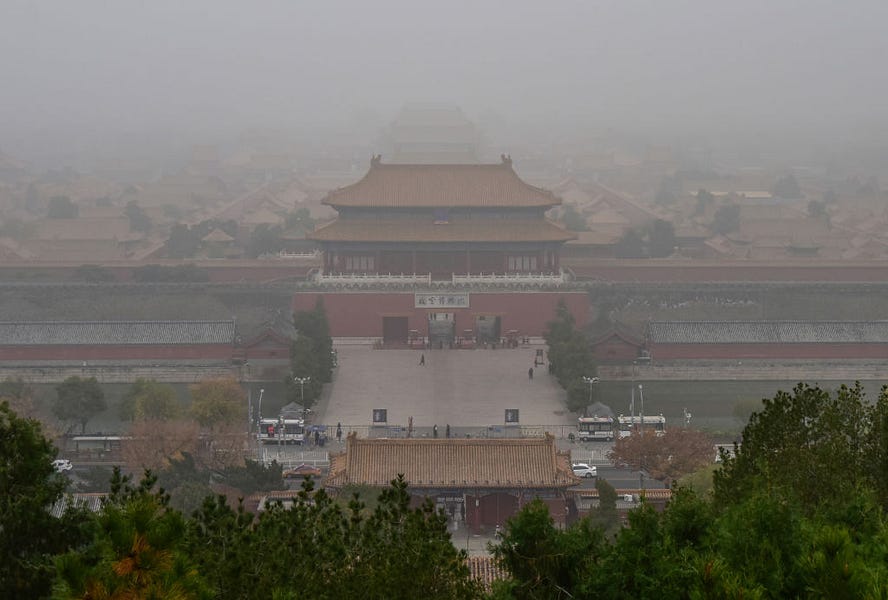Amid all the attention to the Chinese Communist Party’s oppression and authoritarianism—crackdowns on free speech and self-governance in Hong Kong, threats to Taiwan, and its treatment of the Uyghur Muslims, among other examples—one of its human rights atrocities remains underreported.
Using their vast surveillance state, the Chinese government is rounding up Uyghurs and other ethnic minorities to pressure them to renounce their religious beliefs. While enslaved in these camps—the largest mass internment since the Holocaust—they are subjected to horrifying abuse including torture, systematic rape, forced sterilization, and forced abortions.
These conditions alone should have disqualified China from hosting the just-completed Olympics Games. But China’s human rights abuses aren’t limited to those languishing under its influence. As a faith leader and a climate scientist, I can tell you that China’s treatment of the environment is a human rights abuse that threatens all of us.
China leads the world in greenhouse gas emissions, which make temperatures hotter, sea levels higher, and natural disasters more severe—for everyone. In fact, China emits more heat-trapping gases than all of the developed world combined.
Air pollution from China also drifts over to pollute the Western U.S., erasing much of our own clean air gains and exposing us to harmful levels of ozone, a powerful lung irritant. According to the American Lung Association, ozone pollution causes serious lung problems—like asthma in children and COPD in adults—and also increases the risk of premature death overall, particularly for adults over 65 and vulnerable unborn babies.
With American lives at risk, the United States must hold China accountable for these environmental harms.
Some, however, might say that America, as the world’s second-worst emitter, has no room to talk. But that would be missing a key point. The United States’ carbon emissions peaked in 2007 and have been declining since. And while we must do more to ensure the next generation of Americans can enjoy the beautiful nation we were entrusted to protect, the truth is we can’t do it alone. A global problem like climate change requires a global solution.
Although China has pledged on paper to peak its greenhouse gas emissions before 2030 and hit net zero by 2060, President Biden is naive to take these promises at face value.
As we’ve learned time and again, from the origins of COVID to the treatment of tennis star Peng Shuai and the Uyghur genocide, the Chinese Communist Party can’t be trusted at its word. Indeed, Xi Jinping has already hinted that the country will take a lackluster approach toward their lackluster climate goals.
The Biden administration must stand up even stronger to China’s human rights abuses. This also means calling attention to its damage to the environment—damage that threatens the health of all Americans today and our children and grandchildren far into the future. The Republican delegation to last year’s United Nations climate change conference did just that.
The best way to confront China on climate is by reclaiming the title as world leader of the cutting-edge clean technologies that will power tomorrow—a title China earned on the back of slave labor.
That means fortifying U.S. domestic energy supply chains and bringing clean energy manufacturing jobs back home, so we don’t have to rely on China. That means being the world’s chief exporter of affordable and reliable clean energy technology that can lower emissions at home and abroad. Doing so would revitalize our economy and the environment.
The United States has taken some stand against China’s oppression. We staged a diplomatic boycott of the Olympics, joined by Western nations such as Great Britain, Canada, and Australia. Congress passed legislation banning the importation of goods from Xinjiang province, on the presumption that all such goods are at least in part the product of forced labor. By leading the world in developing clean energy sources, we can make similar progress in mitigating its harm on the environment and our health.
The Rev. Dr. Jessica Moerman is an evangelical faith leader, climate and environmental scientist, and Vice President for Science and Policy at the Evangelical Environmental Network. She is also a Public Voices fellow with the Op Ed Project in partnership with the Yale Program on Climate Change Communication.






Please note that we at The Dispatch hold ourselves, our work, and our commenters to a higher standard than other places on the internet. We welcome comments that foster genuine debate or discussion—including comments critical of us or our work—but responses that include ad hominem attacks on fellow Dispatch members or are intended to stoke fear and anger may be moderated.
With your membership, you only have the ability to comment on The Morning Dispatch articles. Consider upgrading to join the conversation everywhere.